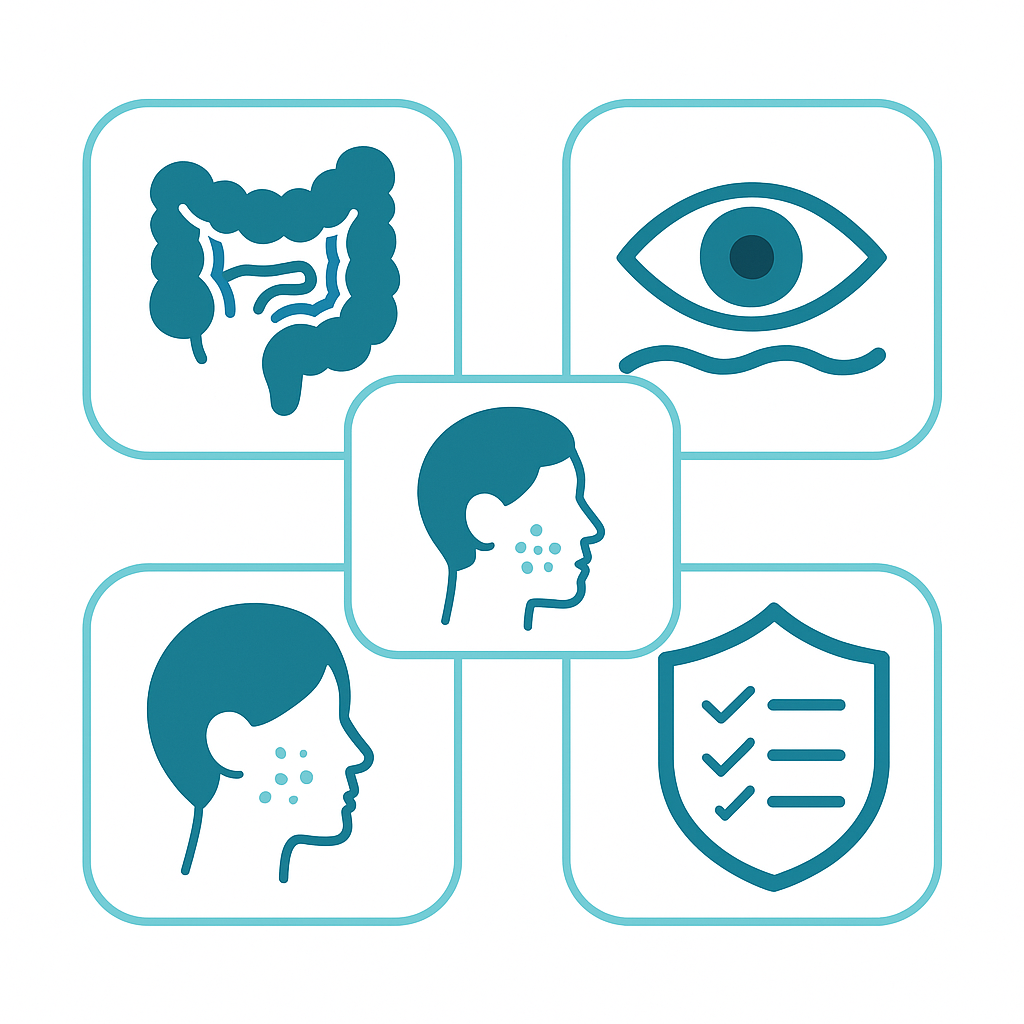What Is Ivermectin?
Ivermectin is a widely recognized antiparasitic medication. In humans, it is prescribed to treat specific intestinal parasites and, in topical formulations, certain skin conditions such as head lice and rosacea. It is not a universal remedy; its effectiveness depends on appropriate use, correct dosing, and medical guidance.
Proven Benefits (Approved or Guideline-Supported Uses)
- Strongyloidiasis (intestinal threadworm): A first-line option in appropriate cases. Dose and duration are determined by body weight and clinical context. Early, targeted therapy helps prevent complications.
- Onchocerciasis (“river blindness”): Community programs use ivermectin to reduce microfilarial loads, supporting improvements in eye and skin findings in endemic regions when implemented by expert teams.
- Head lice (pediculosis) – topical lotion: Lotions containing 0.5% ivermectin can be effective in eligible age groups when used as directed by a clinician. A single application may suffice; repeat decisions are clinical.
- Rosacea (inflammatory lesions) – topical cream: 1% ivermectin cream reduces papule–pustule counts and can improve skin comfort with consistent, clinician-directed use.
- Scabies, including crusted scabies: In some cases—especially extensive or crusted disease, or when topical therapy fails—oral ivermectin may be used as part of a combination plan under specialist care.

How Does It Work?
Ivermectin targets channels involved in parasite nerve-muscle signaling, leading to paralysis and death of susceptible parasites. In topical dermatologic use, it may also show anti-inflammatory effects that support skin improvement.
How Is It Used?
- Oral tablet/solution: Prescribed and dosed by a clinician based on indication and body weight. Self-dosing is unsafe.
- Topical cream/lotion: Used for rosacea or head lice as directed, with attention to application schedule and duration.
Important: Veterinary formulations are not for human use. Product selection and dosing must be made by a healthcare professional.
Safety and Side Effects
- Common: Headache, dizziness, gastrointestinal upset, transient rash or itching.
- Less common/serious: Systemic reactions related to rapid parasite kill (notably in onchocerciasis), which is why monitoring can be necessary in some settings.
- Special situations: Children under 15 kg, pregnancy/breastfeeding, significant liver disease, and individuals who have lived in or traveled to areas with Loa loa require individualized risk–benefit assessment by a clinician.
FAQ
Will one dose solve the problem?
It depends on the condition. Some intestinal infections respond to short courses; others may require repeat dosing or additional therapies.
How quickly do topical products work?
Head-lice treatments can act quickly; rosacea improvements typically emerge over weeks of consistent use.
Can I use it on my own?
No. Correct diagnosis, formulation (oral vs. lotion/cream), dosing, and follow-up are essential for safe, effective use.
Bottom Line
Used appropriately, ivermectin is an effective antiparasitic with meaningful benefits in select infections and dermatologic conditions. For best results and safety, seek an in-person evaluation and follow a personalized plan with your healthcare professional.
Disclaimer: This content is informational and not medical advice.

Leave a Reply